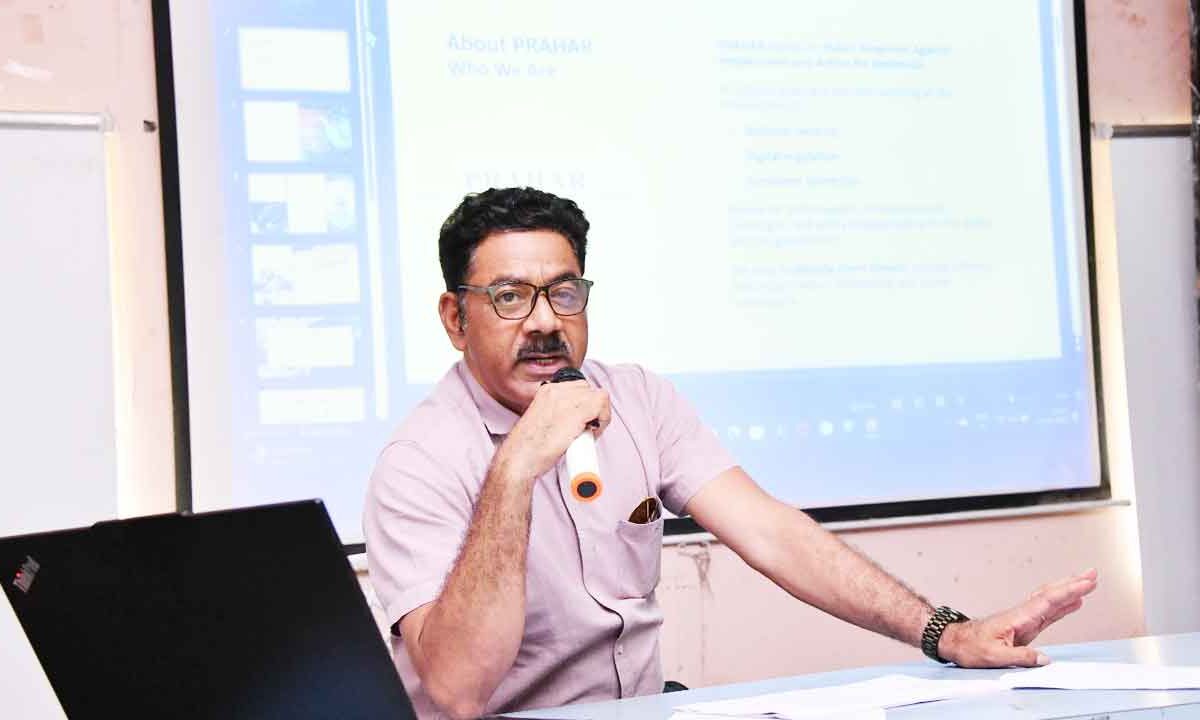Telangana Sees Explosive Surge in Illegal Online Gambling Since Ban: PRAHAR Launches State-Wide Survey to Gauge Public Sentiment
This reveals a disturbing paradox: despite legal bans, enforcement remains ineffective. The public continues to face uncertainty over what is legal, exposing them to exploitation without accessible, regulated alternatives.

Hyderabad: Despite being the first Indian state to implement a blanket ban on online gaming in 2017, Telangana is witnessing a disturbing rise in illegal online gambling and betting activities. The proliferation of foreign platforms, anonymous transactions, and unregulated mobile apps has turned this underground ecosystem into a sophisticated, hard-to-trace, and increasingly dangerous network.
Raising the alarm, PRAHAR (Public Response Against Helplessness and Action for Redressal)—a Delhi-based NGO working at the intersection of digital governance and national security—has launched a state-wide citizen survey in Telangana, covering 2,500 respondents. The aim is to understand how people perceive online gambling versus gaming, their expectations from regulation, and how better alignment between public sentiment and government action can enhance compliance.
Table of Contents
“Our research shows that while India’s digital expansion is empowering, it is also creating new vulnerabilities,” said Abhay Raj Mishra, President and National Convenor of PRAHAR. “In the absence of a strong national framework, illegal platforms are being exploited by hidden actors for financial and ideological gain—posing a serious threat to India’s sovereignty and stability.”
He further emphasized the need for a public-driven regulatory approach:
“Compliance becomes natural when there’s no disconnect between policy and public will. This survey is a step towards understanding what the people of Telangana really want.”
Findings Point to Widespread Exploitation and Lack of Awareness
The new survey initiative builds on PRAHAR’s two recent research reports:
- “The Invisible Hand” revealed how foreign-owned betting platforms are trapping Indian users in cycles of financial loss, identity fraud, and radicalization. The report estimates India could face up to 17 trillion cyberattacks annually by 2047. Telangana alone has seen an 800% rise in gambling-related cybercrimes between 2020 and 2025, including cases involving money laundering, youth suicides, and celebrity-backed illegal apps.
- A separate survey across Tamil Nadu found 75% of youth couldn’t distinguish between legal and illegal gaming, while 86% opposed state-imposed gameplay restrictions. The research underlined that while youth are not against regulation, they seek clarity and safe alternatives—not blanket bans.
Ban in Law, But Not in Practice
Telangana’s 2017 prohibition included even games of skill, but illegal gambling networks have only strengthened. In 2025 alone, the state recorded over 3,900 betting-related violations. Additionally, 25 celebrities and influencers were booked for endorsing banned platforms. Use of VPNs, Telegram channels, foreign servers, and proxy agents has made enforcement exceedingly difficult. In parallel, rising cases of youth suicides linked to gambling debt have shocked the public.
This reveals a disturbing paradox: despite legal bans, enforcement remains ineffective. The public continues to face uncertainty over what is legal, exposing them to exploitation without accessible, regulated alternatives.
Survey Focus: Awareness, Usage, and Public Aspiration
PRAHAR’s ongoing Telangana survey focuses on three pillars:
- Awareness – What do citizens know about online betting laws?
- Usage – How do they engage with digital gaming and gambling platforms?
- Expectations – What regulatory model do they believe is fair, safe, and practical?
“We’re not here to recommend a policy,” said Mr. Mishra. “Our job is to amplify the voice of the people—because when regulation mirrors public intent, compliance follows organically.”
The survey’s findings will be released within a month and shared with government bodies, civil society, and the general public to drive an informed national dialogue on securing India’s digital future.
